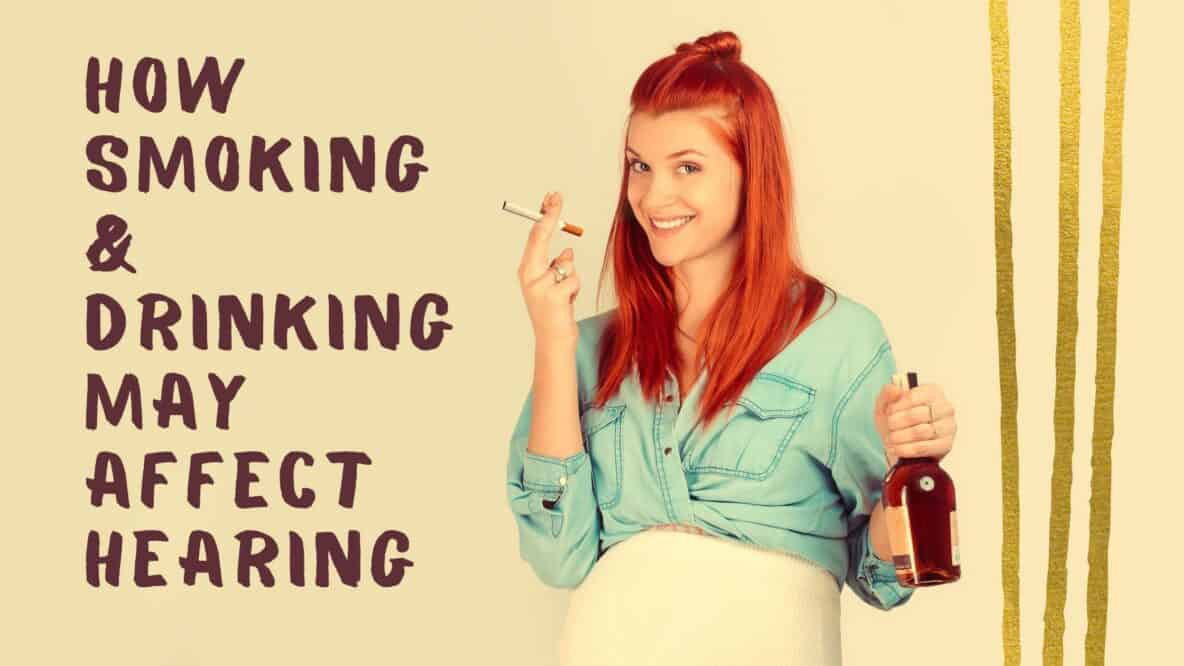Although a percentage of people who experience difficulty hearing are genetically predisposed, most cases of midlife onset of hearing loss are due to lifestyle choices and environmental factors. Smoking and drinking are personal choices that can negatively impact the health of your hearing.
Our diet and lifestyle can impact our overall health in many subtle and profound ways. Smoking and drinking consistently show adverse health impacts. Taking inventory on what we can and can’t control and making informed decisions about which behaviors we engage with is a great way to self-advocate for your healthiest and most active life possible.
Some things are beyond our control
Many times, the lifestyle factors that contribute to hearing loss are beyond our control. Noise exposure that results in damage to the inner ear cells can occur entirely by accident, such as an explosion or other too-loud incident. We’re constantly exposed to the daily noise pollution in our neighborhoods, like incessant traffic, construction work or necessary agricultural machinery. Some people work in professions that are dangerously noisy, like the military or or as professional musicians. Recreational activities like jet skiing and concert-going can harm our hearing.
The increased dangers of smoking
Smoking cigarettes is one of the most dangerous behaviors we casually engage in. Smokers are more likely to develop lung and other types of cancer and smoking is to blame for one in five deaths in the United States.
The evidence that smokers have a higher incidence of hearing loss is overwhelming. There is a history of scientific studies that show smoking is linked to a higher incidence of hearing loss. In fact, a smoker is more than one and a half times more likely to receive a diagnosis of hearing loss than a non-smoker. A recent study, conducted in 2014, confirms that to be true. Looking at participants aged 40 to 69, results indicated that current smokers were more likely to show signs of hearing loss. Moreover, people within the study who did not smoke but were exposed to cigarette smoking by others also showed an increased likelihood of hearing loss.
Alcohol and hearing loss
The causation between alcohol intake and hearing loss is less strong. Some studies have found correlations between increased alcohol intake and a higher incidence of hearing loss, while others, like the 2014 study mentioned above, have had surprising findings that indicate that alcohol may prevent hearing loss.
However, the correlation between hearing loss and alcohol intake is worthy of consideration. Scientists posit that brain damage, caused by high alcohol consumption over time, might result in the hearing loss that is present in some heavy drinkers. The reality that heavy drinking can cause brain damage might make you turn down that additional cocktail, even if your hearing systems are left relatively undamaged.
Opt in to smoking cessation
It’s never too late to quit smoking. You can start any time by trying to reduce your cigarette intake. There are many resources to help you in your journey towards a smoke-free life. Speaking with your doctor is a great way to get started on your path and they may be able to prescribe aids that will make quitting smoking that much easier.
If you’d like to find a program on your own, smokefree.gov has a plethora of resources to guide your way. Some people quit many times before they are successful. Recognize that smoking is an incredibly addictive habit and that you might stumble a few times before you quit for good.
Consider lightening up on alcohol
Even if there is no absolute damage to your hearing health, an excessive alcohol habit can be a dangerous dance to engage in as you are more likely to find yourself in situations where your judgement is impaired. Inherently, alcohol is a toxin and can do irreparable harm to your health, including brain damage.
If you are thinking about reducing your alcohol intake, or quitting altogether, you are not alone. While Alcoholics Anonymous has been the go-to sobriety model for decades, more and more sober conscious groups and methods are popping up. Try an internet search on ways to sobriety to find a modality that suits your line of thinking and desired outcome. Support groups abound, and finding folks like you online or in-person can help you stick to your goals.

